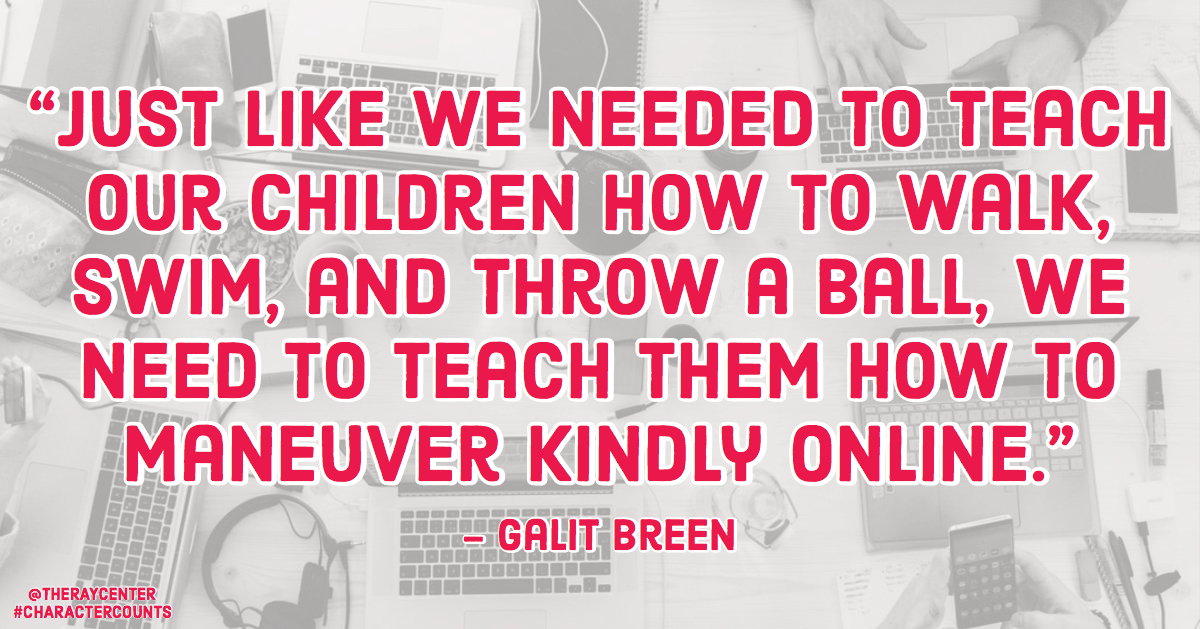
From our guest contributor, Michele Borba.
One of the top questions I’m asked by parents is how to keep children safe online. It’s a legitimate concern. Surveys show that about four out of ten kids have experienced cyber-bullying. What’s more, most of those bullies aren’t predators or even strangers, but real world “friends” they know. I’ve dealt with far too many children who suffer from anxiety and depression after dealing with cold-hearted, intentional online attacks. Make no mistake: the root of bullying is always a lack of empathy, and far too many kids-and adults-are in deficit mode.
While we wring our hands and wonder what to do, we may be missing one of the simplest solutions: teaching kids to be kind. And that goes both online and off. After all, we teach our children to “be nice” in the sandbox and playground, but they also need help in navigating with their newest playground turf: the virtual world. Instead of assuming they understand the “play nice” online rules, we must directly teach those lessons.
The good news is that former educator and mom, Galit Breen shows us how her in must-read, “Kindness Wins: A Simple, No-Nonsense Guide to Teaching Our Kids How to Be Kind Online.” This essential parenting manual makes the persuasive case for teaching our children online decency and it is written with warmth, humor, sage advice and compassion. She points out that becoming social media savvy is a skill that can be taught, and offers ten simple habits to teach kids to be kinder online.
Ten Online Habits to Teach Kids: “Kindness Wins”
Habit 1: Take a breath before you post.
Habit 2: If it’s not kind, don’t post it!
Habit 3: Tell an adult when you see troublesome online behavior.
Habit 4: You’re in charge of your online life.
Habit 5: We don’t talk about other people’s bodies-online or off.
Habit 6: Nothing is private online: everything is sharable.
Habit 7: If you do have something to say make sure it is true, necessary and kind.
Habit 8: Post like everyone is watching.
Habit 9: Ask permission to share.
Habit 10: Kindness wins, always.
Breen also says that directly teaching our children these skills with real examples is always the best way to explain what’s okay to say and do online and what’s not. Of course, the beauty of Breen’s book is that she also shows exactly how to have those important conversations with kids and offers a wealth of practical takeaways. What’s more, the book provides resources for further reading, discussion starters and dozens of practical bulleted takeaways. Kindness Wins also includes two contracts: one to share with peers and one to share with kids.
I strongly recommend you get a copy of Kindness Wins and start teaching your children Breen’s ten habits. Working together is the best way help kids grow up in a kind and caring culture. If we preach the same “kindness” mantra, we really can make a difference on our children’s world.
It’s time we help our children be kind both online and off. As Breen points out, “Just like we needed to teach our children how to walk, swim, and throw a ball, we need to teach them how to maneuver kindly online.”
Lucky for us, Galit Breen has provided a manual to show us the way.
Dr. Michele BorbaMichele Borba is an educational psychologist, parenting expert, TODAY show contributor and author of 22 books including The Big Book of Parenting Solutions: 101 Answers to Your Everyday Challenges and Wildest Worries and UnSelfie: Why Empathetic Kids Succeed in Our All-About-Me World.
Check out: micheleborba.com or follow me on Twitter @micheleborba.
Click here for more information on character education.



